The Best Films of the Year (* According to Metacritic, According to Me): Part I
My annual mid-ish year round-up of acclaimed films I missed includes two dramas about green energy coming to rural Spain and a heartrending doc about Alzheimer's.
We can’t cover everything in this newsletter. In fact, we can’t cover a fraction of a fraction of everything. And so, every year around this time, before the rush of awards contenders and fall festival favorites start commanding our attention, I like to use this space to play catch-up on some of the most acclaimed films I missed from earlier this year. The hope is that I bump into a few “list-worthy” titles I might not have seen otherwise—or, at a minimum, get to watch 10 good films from around the world. And perhaps put some less-heralded efforts on your radar, too.
In 2021, two of the films in this feature (Part I, Part II) made my Top 15 list, Tsai Ming-liang’s Days (#11) and Jasmila Žbanić’s Quo Vadis, Aida? (#13), with two more (This is Not a Burial, It’s a Resurrection and Wojnarowicz) among the honorable mentions. Last year, two more films in this feature (Part I, Part II) made my Top 15 list, Audrey Diwan’s Happening (#14) and Panah Panahi’s Hit the Road (#15), and surely a couple more would have gotten honorable mentions had we included the category in our year-end feature. (Specifically, the epic German documentary Mr. Bachmann and His Class and the devastating Belgian drama Playground.)
Before kicking off this year’s two-parter, some important notes: 1. Between the time I gathered titles for this feature and now, Metacritic has undergone a redesign that has completely altered its Best Movies This Year page by eliminating many titles, including nine of the ten that I’ll be covering this week and next. This may be deliberate or it may be a technical glitch, but needless to say, I won’t be featuring the “current ranking” of a given film, just its Metacritic score. 2. If either Keith or I have covered a film in this newsletter, it won’t be part of this feature, so you’ll have to wait until year’s end to see if Past Lives, Oppenheimer, Showing Up, Return to Seoul or other favorites make our lists. 3. Related to the first item, Metacritic used to list upcoming titles that have not been released to theaters yet on its “Best Movies This Year” page and that would affect the ranking, too, since many are highly regarded festival favorites. Those films are not part of Metacritic’s list and they would not be on here, either.
With those caveats out of the way, on to #10-6:
10. Shin Ultraman (dir. Shinji Higuchi)
Metacritic score: 84.
How to watch: The usual rental services.
List-worthy? No.
Premise: With the constant threat of city-leveling “kaiju” rampaging Japan, the government has created the S-Class Species Suppression Protocol (SSSP) as a high-tech enforcement unit to destroy the creatures and mitigate the damage. As conditions worsen, the SSSP gets a new, mysterious ally in Ultraman, a silver-streaked humanoid giant of immense power and unknown origin.
Thoughts: Back in 2016, director Shinji Higuchi and writer Hideaki Anno had incredible success in modernizing the Toho monster movie with Shin Godzilla, which was a huge hit at home and became a significant cult item elsewhere. This follow-up only had a brief, two-day theatrical window as a Fathom Event back in January, but it deserves a wider audience. Perhaps American audiences don’t have the built-in fondness for a superhero who rose to prominence on a popular Japanese TV series in 1966, but Shin Ultraman doesn’t lean on nostalgia alone. Higuchi and Anno strike an exceptional balance between the old-fashioned thrills of monster battles and a self-awareness and modernity that doesn’t tip into glib camp. In the lead role of SSSP boss, Drive My Car star Hidetoshi Nishijima provides the necessary gravity to keep the stakes high and land the film’s allusions to nuclear and environmental politics. Yet the film is as feather-light as its creatures are lumbering, with lots of offhand wit and middle-of-the-day special effects that look, if not convincing, than perfectly in step with tradition. The U.S. is plainly not the only place where superhero reboots are possible.
9. The Beasts (dir. Rodrigo Sorogoyen)
Metacritic score: 85.
How to watch: In theaters.
List-worthy?: Not quite.
Premise: In a Galician village in rural Spain, a French couple (Denis Ménochet and Marina Foïs) run an organic farm and spend their spare time rebuilding homes that have gone to seed. Yet their quiet lives have nonetheless drawn the hostilities of their neighbors, particularly a pair of xenophobic brothers (Luis Zahera and Diego Anido) who are still angry that they cast the decisive votes against a Swedish windmill farm that would have given residents a tidy payout.
Thoughts: The immediate points of comparison for The Beasts are films, like Deliverance and Straw Dogs, about the suspicion and violence that greets outsiders who encroach on the countryside. But where those films implied a certain arrogance on the outsiders’ part—in Deliverance, the weekend warriors are city slickers cavorting on a land that’s under development; in Straw Dogs, Dustin Hoffman is marked as a yellow-bellied intellectual—the French couple here are wholly sympathetic, tending to their land in a sustainable way, reviving dilapidated properties, and treating customers at the market with gregarious good cheer. Though slightly the lesser of the two Spanish films on this list about green energy initiatives wreaking havoc in idyllic rural locales, The Beasts thrives on a slow-burn tension that may not manifest itself in the shocking set pieces of Deliverance or Straw Dogs, but has a dread-inducing pull to it all the same. The expected tragic result of all this friction comes at a structurally surprising spot, too, leaving the film to tell a different kind of story about the fallout.
8. Alcarràs (dir. Carla Simón)
Metacritic score: 85
How to watch: Mubi; the usual rental services
List-worthy?: Honorable mention.
Premise: On a sun-dappled farm in rural Catalan, three generations of the Solé family make a modest living running a peach orchard. But the handshake deal their grandfather made to work the land falls apart when the current landowners opt to install solar panels over the entire agricultural plot. The once-tight-knit family starts to come apart at the seams about what to do in the near- and long-term.
Thoughts: Like her first film, Summer 1993, Simón’s Golden Bear winner draws on her own experiences and it has the same level of specificity, like a vivid memory. In the first moments of the film, before the unexpected rumble of a bulldozer breaks the quiet, we can imagine the harmony of growing up on this orchard, but Simón yanks that away in an instant. It would almost be easier for the family to simply get booted from the plot, but the offer to stay and retrain as solar panel engineers is more lucrative than the local peach market, so it opens up divisions where there were none before. Alcarràs isn’t as simple a story as capitalism encroaching on a rural idyll, but a more ambiguous tale about a family forced to adjust to changing times and discovering it’s a painful evolution. The only real harmony they experience is in the necessary labor of handling the season’s harvest. Otherwise, the film lives with uncertainty.
7. Walk Up (dir. Hong Sang-soo)
Metacritic score: 86
How to watch: Not available. No theaters currently, not yet on video.
List-worthy?: No.
Premise: Byungsoo (Kwon Hae-hyo) brings his estranged daughter (Park Mi-so), an aspiring interior designer, to meet Ms. Kim (Lee Hye-young), an old friend and established designer who owns a small, three-floor walk-up building. After sharing some wine and chatting, Byungsoo leaves the women alone while he takes care of an issue at the film office. Some unspecified time later, he returns to a different situation.
Thoughts: The premise sounds like a typical Hong play on variations of the same scenario, which he’s done multiple times in great films like Virgin Stripped Bare By Her Bachelors and Right Now, Wrong Then. But each of the three distinct sections of Walk Up, one per floor of the building, are simply progressions in time, not Hong looping the narrative back on itself. It’s a clever idea and eminently watchable, particularly as Ms. Kim evolves from an accommodating host to a nosy, capricious landlord once Byungsoo has become a tenant on the top floor. Hong teasingly invites you to fill in the blanks—How much time has passed? How have these relationships shifted?—but the conceptual wizardry of Walk Up masks a thinness between the lines. The chatter in Walk Up is improvisatory and mundane, and this being a Hong Sang-soo movie, there’s quite a lot of it happening, usually over drinks. But this is the rare case where the conversation and the characters didn’t grip me and there’s no amount of structural finagling that can make up for that.
6. The Eternal Memory (dir. Maite Alberdi)
Metacritic score: 87.
How to watch: In theaters. Theoretically.
List-worthy?: On the cusp.
Premise: The long-married couple Augusto Góngora and Paulina Urrutia are public figures in Chile—Góngora a former TV journalist who risked his life doing underground broadcasts during the Pinochet dictatorship, Urrutia a former actress who served as Michelle Bachelet’s culture minister. This intimate documentary tracks Góngora’s battle with Alzheimer’s and Urrutia’s efforts to care for him as his memory fades.
Thoughts: An astoundingly beautiful documentary, enhanced by a couple that’s comfortable being themselves in front of the camera. In fact, when the pandemic disrupted the filming, Urrutia took over shooting herself—if anything to greater effect. We can see the tragic erosion of Góngora’s memory and physical capacity over the course of the film, but the loveliest part of The Eternal Memory is how little it shakes Urrutia’s indefatigable optimism and her adoration of a husband who will come to see her as more and more of a stranger. Given the couple’s public status, Alberdi (The Mole Agent) has plenty of footage of their vital younger selves to establish their personal histories and the happier times they shared together before this cruel illness derailed their golden years. But as the title implies, there’s a bond between them that seems to transcend memory, as if Góngora can forget every detail about his wife but still harness that flame of recognition. The few times Urrutia cracks a bit are heartbreaking, but it’s really her ability to love this man equally in sickness and in health that defines this documentary.




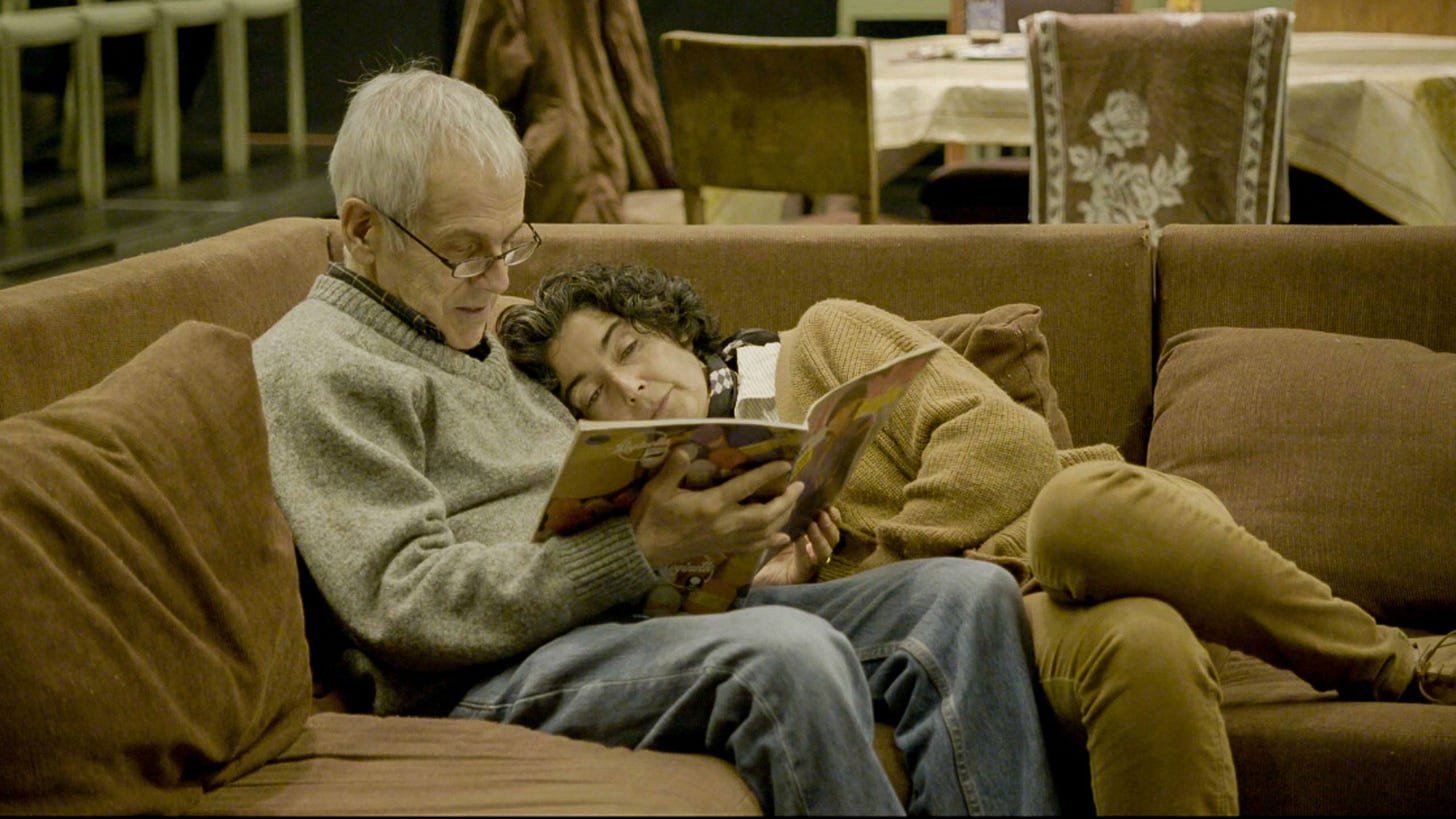
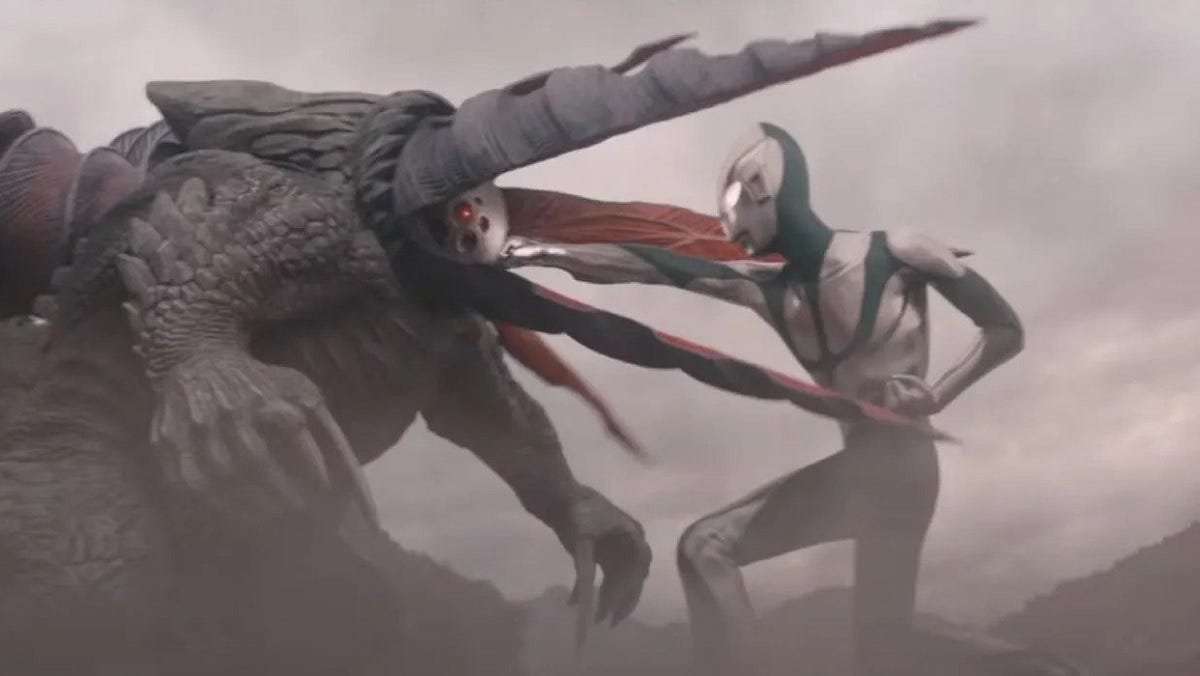
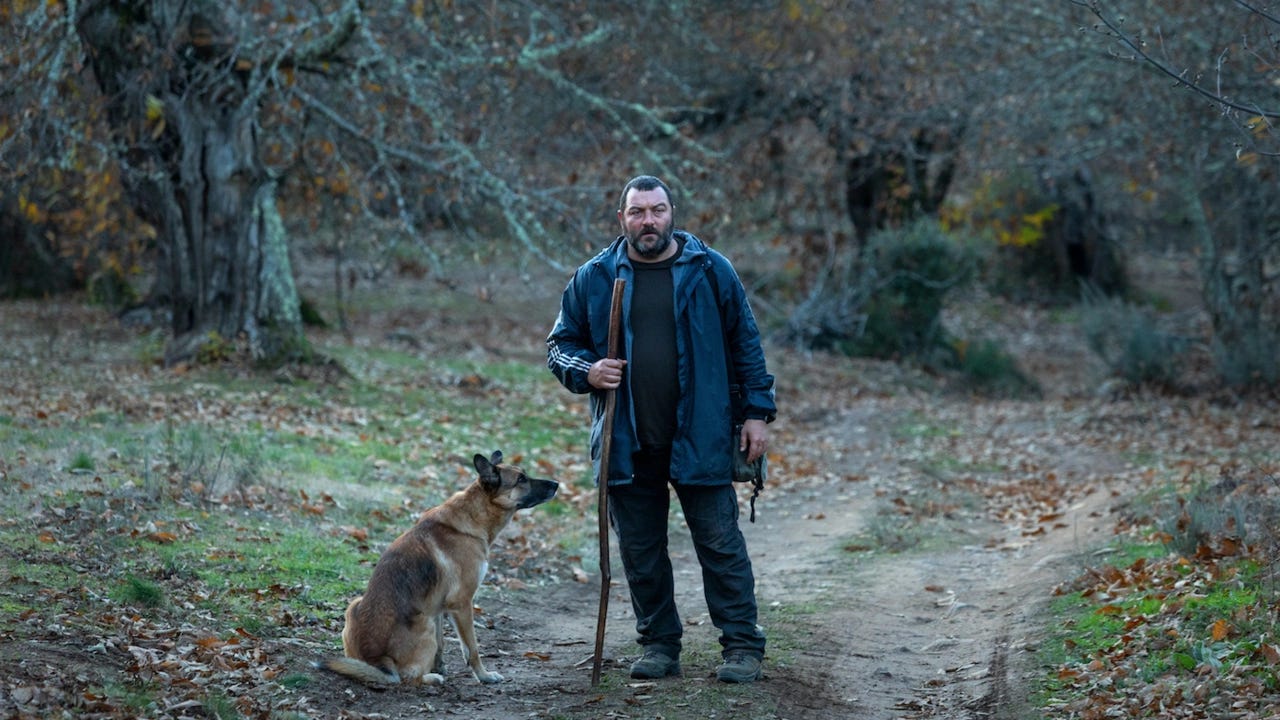
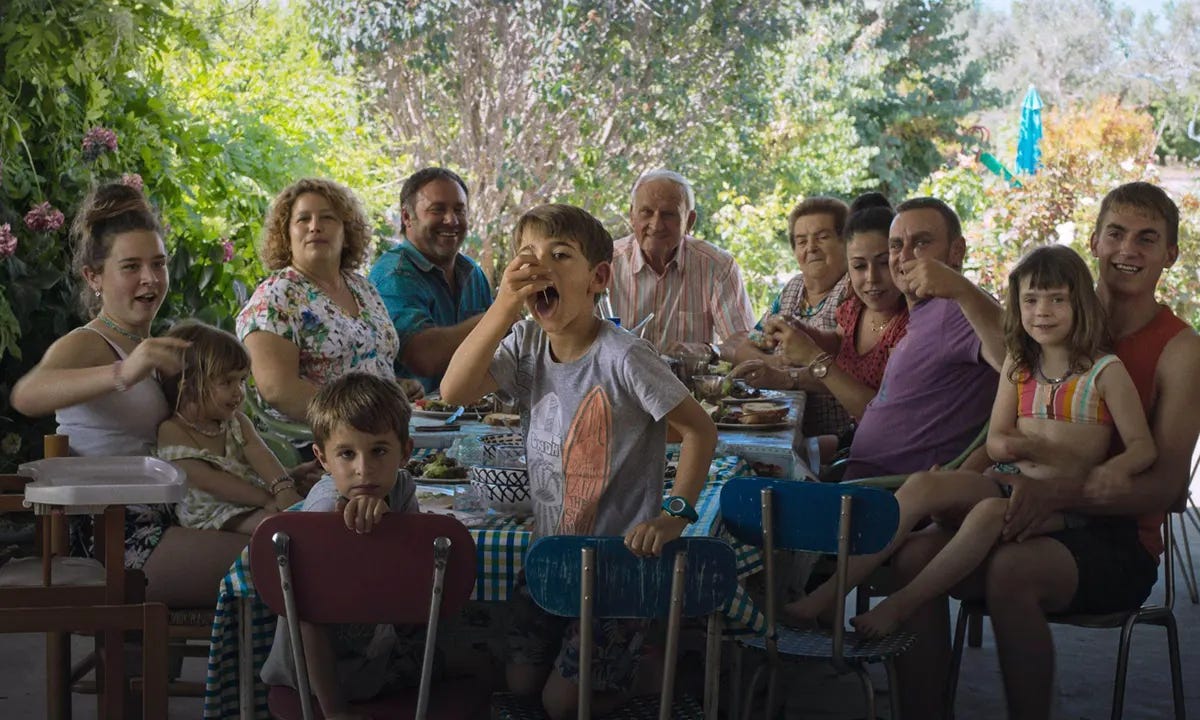
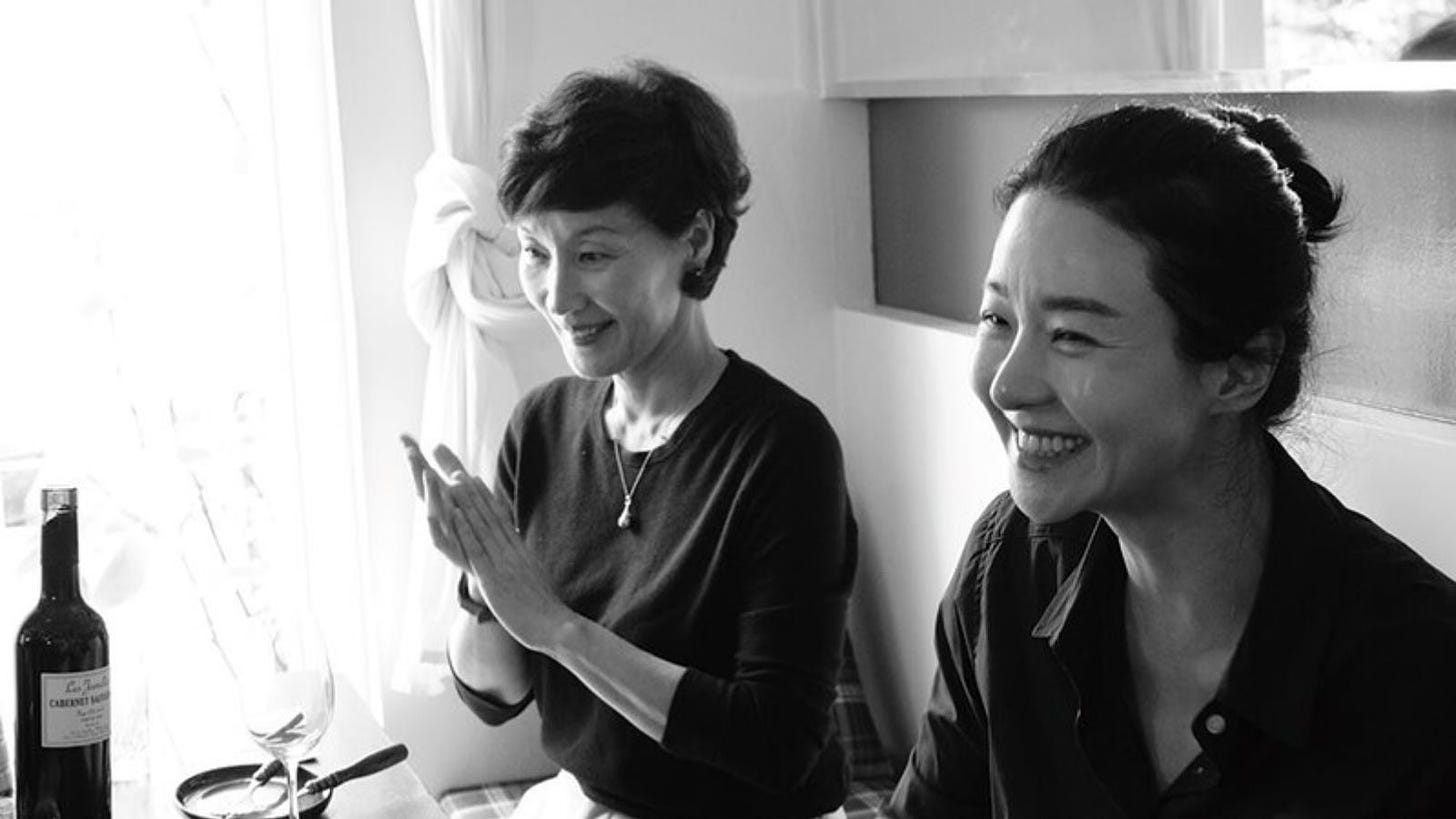
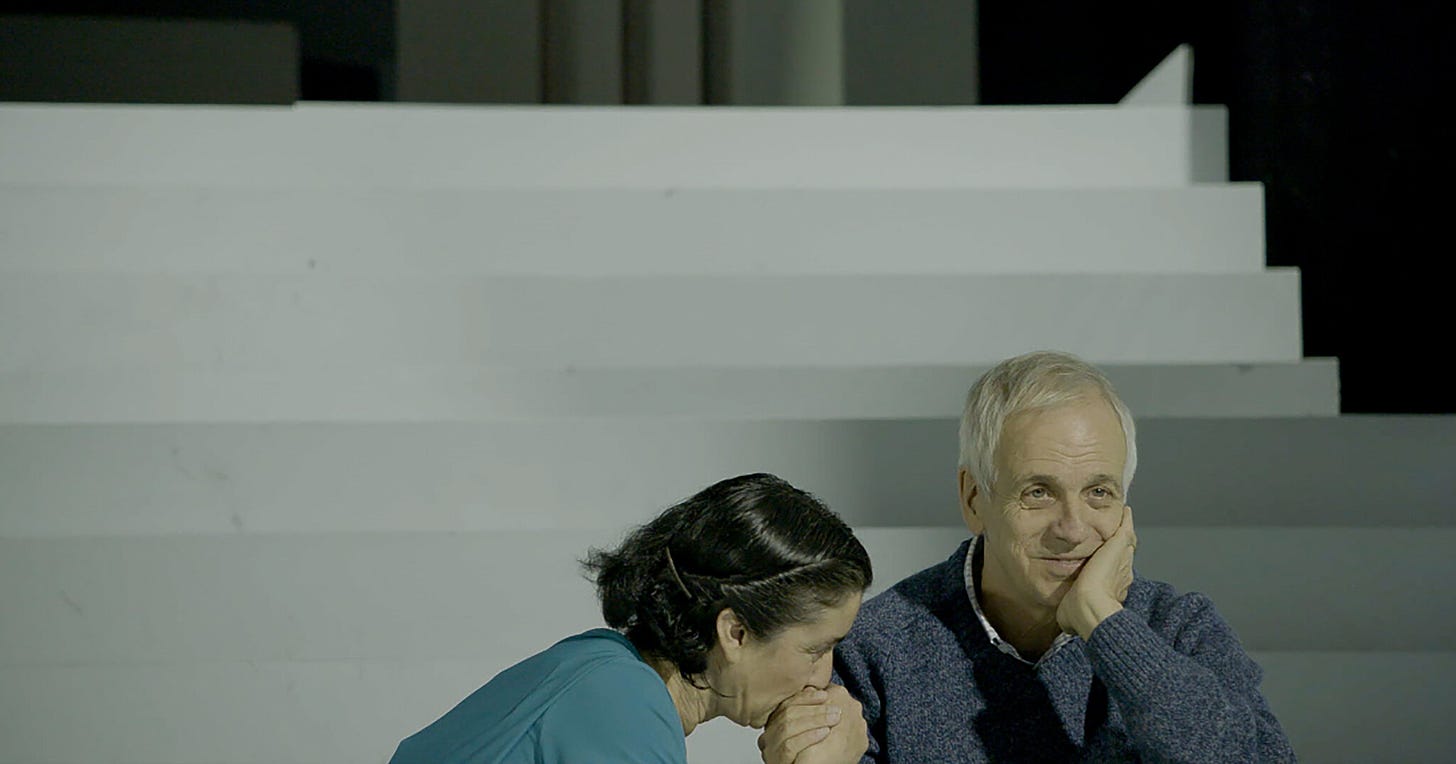
"Perhaps American audiences don’t have the built-in fondness for a superhero who rose to prominence on a popular Japanese TV series in 1966"
but we do have a fondness for the American version that aired in the 80s!
if you're checking this around October/November 2023: The Eternal Memory's on Paramount+ (along with a lot of other surprise documentaries).